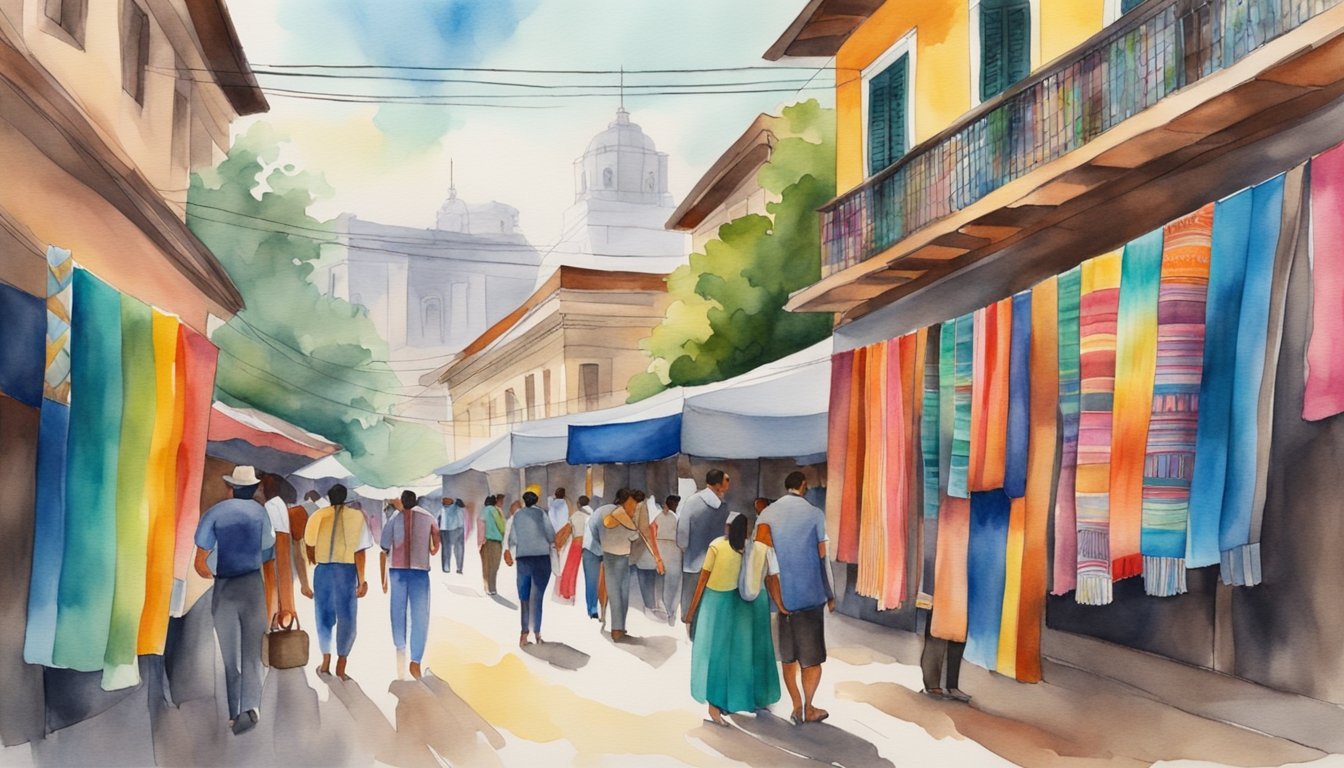Exploring Guatemala: Land, History, and People
Natural Wonders and Geographic Splendors
Guatemala, often referred to as the land of trees, is a diverse country nestled between the Pacific Ocean and the Caribbean Sea. Known for its stunning natural landscapes, Guatemala is home to numerous volcanoes, forests, and mountain chains. In fact, this Central American nation lies on the Ring of Fire, a region with a high concentration of active volcanoes and earthquake activity.
One of the most captivating natural wonders in Guatemala is Lake Atitlán, a beautiful lake surrounded by three majestic volcanoes. Moreover, the country’s impressive Petén region is covered in lush rainforests and is a paradise for nature enthusiasts and explorers alike.
A Glimpse Into the Past: Guatemala’s Rich History
Guatemala has a fascinating history that spans thousands of years. The ancient Mayan civilization, one of the most highly developed precolonial American cultures, thrived in this land. They built numerous cities and developed sophisticated astronomical observatories and a complex calendar system. The well-preserved Mayan ruins of Tikal, a UNESCO World Heritage Site, stand as a testament to their incredible architectural prowess.
In 1524, Spanish conquistador Pedro de Alvarado conquered Guatemala, leading to Spanish colonization. After nearly 300 years, the country gained its independence from Spain in 1821, and the city of Antigua played a significant role in the region’s political and cultural development. However, Guatemala’s history did not settle there; the country faced a series of military regimes and a long-lasting civil war that continued until 1996 with the signing of peace accords. Today, Guatemala is a democratic republic with the Congress of the Republic governing the nation.
In recent years, the Movimiento Semilla has been gaining momentum as a political force advocating for more inclusive and sustainable policies in the country, fostering hope for a brighter future. With its incredible natural wonders and a rich historical heritage, Guatemala offers a unique and fascinating experience for those who wish to explore its marvels and learn about its vibrant culture.
What Key Cultural Insights About Guatemala Can Enhance My Understanding of El Salvador?
Understanding Guatemala’s rich traditions and history can deepen your appreciation for neighboring El Salvador. Both countries share a Maya heritage, indigenous communities, and stunning natural scenery. By exploring these connections, you can better appreciate the nuances of their cultures. This knowledge enhances your journey as you discover el salvador’s vibrant culture and landscapes.
Culture, Governance, and Modern Life in Guatemala

The Cultural Tapestry of Guatemala
Guatemala is a culturally rich country, with a strong influence of Mayan and Spanish heritage. The indigenous Maya population is a significant part of Guatemala’s society and has a deep impact on its art, customs, and traditions. The country’s population also includes mestizo (mixed), Xinca, and Garifuna communities, making it a diverse and vibrant culture.
Religion also plays an essential role in Guatemala’s society, with most Guatemalans identifying as Roman Catholic or Evangelical. The ancient Maya archaeological sites, such as Quirigua, attract tourists and archaeologists alike, showcasing the rich history and indigenous culture of the region.
Antigua, a beautifully preserved colonial city, is a popular destination for travelers interested in history and architecture, along with vibrant arts and handicrafts scenes.
Governance and Economic Horizons
Guatemala is a constitutional republic, with a president, vice president, and congress as the main pillars of its government structure. Elections take place regularly, with multiple political parties participating in the democratic process.
President Alejandro Giammattei, along with the Congress of the Republic, plays a crucial role in shaping the country’s policies. Trade, exports, and tourism contribute to the Guatemalan economy. The government encourages economic development through investment initiatives in infrastructure and promotion of tourism, among other policies.
Social Issues and the Path to Progress
Guatemala’s society and development have been significantly influenced by its history, with a 36-year-long civil war that came to an end in 1996. The Peace Accords that followed helped lay the foundation for progress in human rights and socio-economic initiatives. Nobel Prize laureate Rigoberta Menchú is a prominent advocate for indigenous peoples’ rights, promoting peace and social justice.
Despite these significant strides, Guatemala still faces challenges such as crime, poverty, and inequality, particularly affecting its indigenous population. Addressing these issues and continuing to work towards socio-economic development is crucial for the country’s progressive path.
While this section provides a glimpse into Guatemala’s culture, governance, and modern life, it is essential to remember its vast historical, social, and cultural tapestry. Guatemala continues to hold a unique place in the Central American region, with its rich and diverse indigenous heritage shaping its present and future trajectories.

